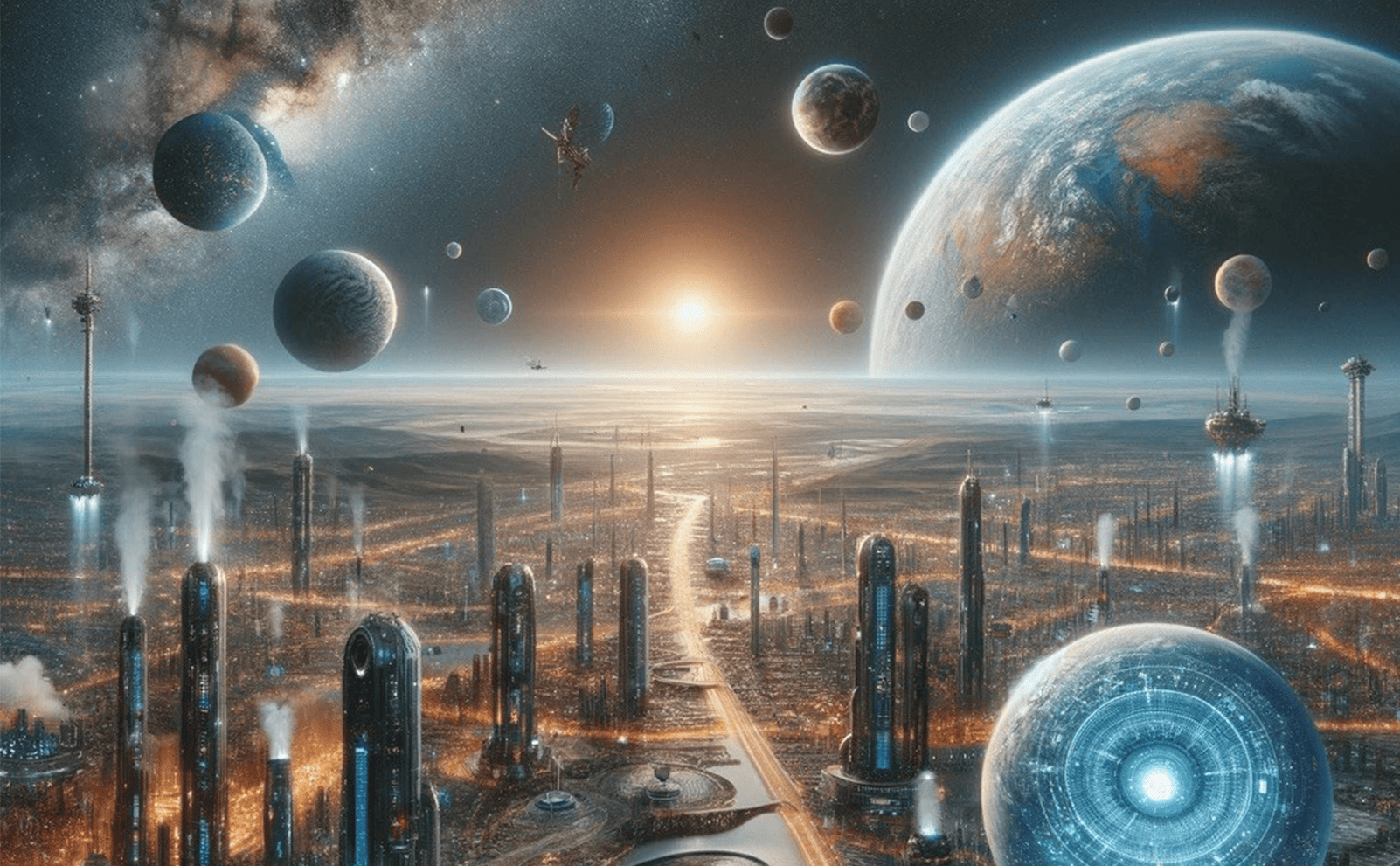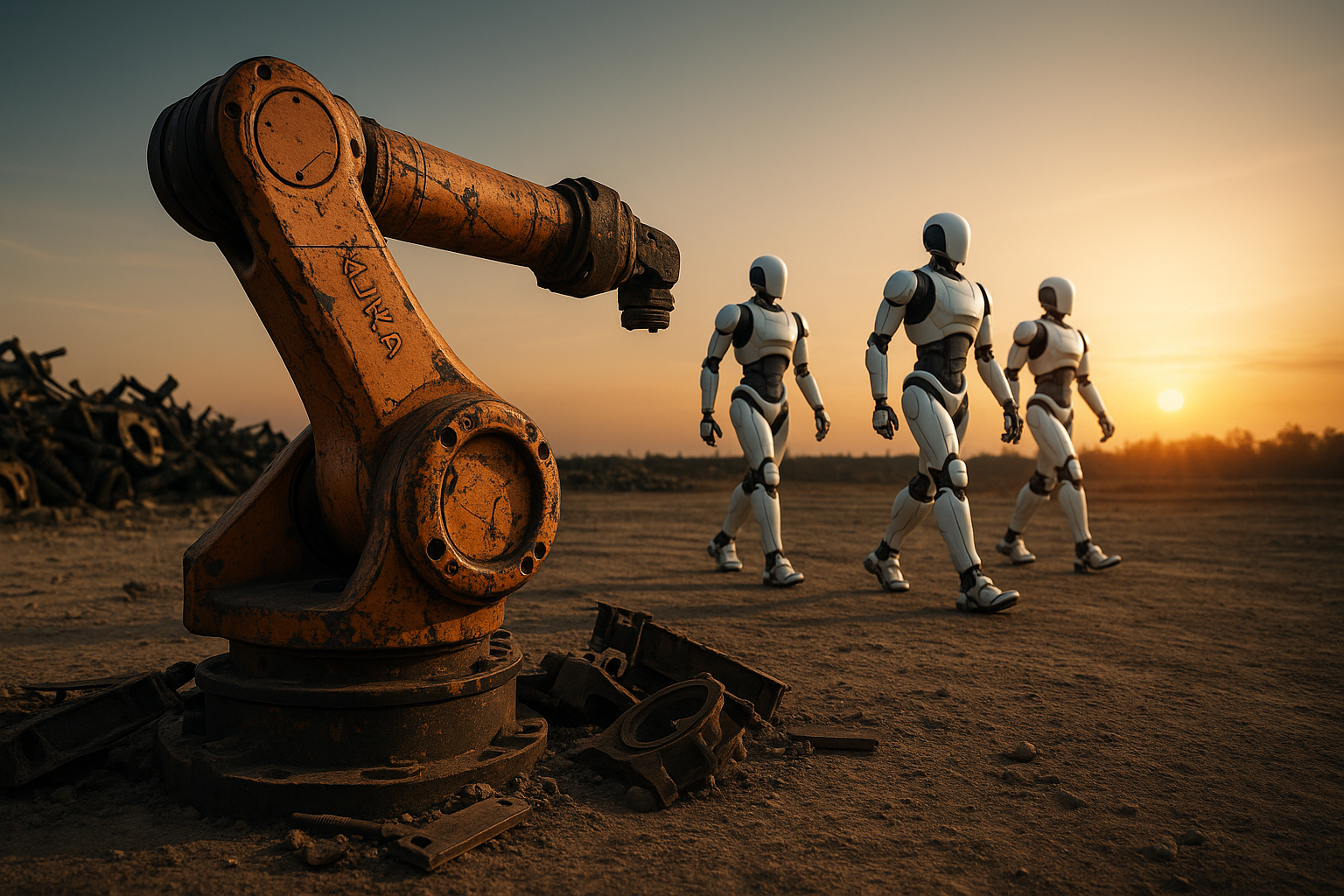Critical Mass: Future vision for an independent human society in space?
With Elon Musk’s Starship system, humanity is now able to transport 100 tons into space with a single launch. Start-ups such as Isar Aerospace are working on creating an ever-wider commercial range of continuously cheaper launch options. But Daniel Suarez already made it clear to us in the novel “Delta-V” that all these advances will not be enough for humanity to actually conquer space and make it usable as a living and economic space.
For this next step, we need to directly tap into and use the resources in space. Transporting millions of tons of material from the Earth’s gravitational dip into space cannot and should not be the goal. To truly develop a space society, we must make the resources of asteroids, planets, and moons accessible. We must learn how to use new technologies to create new recycling concepts for the raw materials we need, such as energy, water, oxygen, carbohydrates, proteins, and the materials required to produce habitats.
The prehistory
We are currently learning how to use the new terrestrial possibilities offered by cheaper transportation systems into space for communication and EO (Earth Observation) data, as well as new materials and active substances. Daniel Suarez takes us into the future with his second volume “Critical Mass”: In the form of a near-future novel, he depicts a world of real social expansion into space that will soon be possible. I highly recommend reading the first volume “Delta V” in advance.
Can there be a human society without an Earth-centered worldview?
When we dream of lunar or Martian colonies in other sci-fi novels, it’s usually in an Earth-centered system with terrestrial superpowers and states that also conquer parts of space. In SciFis with aliens, it’s more about human behavior with or against one or more other species.
With “Critical Mass”, a completely different and new vision emerges, in which we imagine a human society that is formally independent of Earth. This society is able to develop without a constant supply of resources from the earth. Suarez describes a theoretical scenario of how such an interstellar human social system could develop.
This requires a financial system that is independent of Earth and states. In his world, it is blockchain-based and powered by valuable resources mined in space. The author leaves open the question of whether these beginnings will actually give rise to planetary states that are independent of earthly resources and territories, or whether they will remain economic zones independent of earthly control. However, it is certainly worth discussing (theoretically).
Will we solve our planet’s problems with extraterrestrial resources in the future?
In Suarez’s fiction, we even solve our CO2 problem with a financial system that is independent of the earth and earthly resources. That was a little too much for me, because I am now certain that green utopias will certainly not save our planet from destruction.
If you delve a little deeper into this idea, this fiction may have an interesting insight into a possible solution – regardless of what we wish for. Can there even be a purely Earth-based solution with which we can steer the individual egoism and the systemic will to survive of independent states with several billion people in such a way that we do not exploit this planet beyond its carrying capacity?
I am now skeptical, or at least cautious, and consider Suarez’s idea to be an important idea: that we need a system outside the planetary boundaries (money fiction, resources, trust) in order to rethink earthly problems.
Richness of detail and a positive entrepreneurial image
Whether or not you can get anything out of the many and extensive technical descriptions of robots, cobots, and the resource model behind the independent financial currency, Lunar, certainly depends on your own degree of nerdiness. It is certainly an interesting look into a world that is just a little more technologized.
The biggest criticism of Suarez’s model of the future comes from those who are skeptical of entrepreneurs in today’s real world: Will technology entrepreneurs with extraterrestrial resources and a liberal economic order really lead humanity to a more positive future?
“Why not?” is my counter-question. I doubt that an increasing state quota and technological dirigisme will create a sufficiently curious and open society – a poor basis at least for trying out and shaping new things. Then it must be permissible to sketch such a utopia in a novel, which will turn out differently anyway, but at least creates a positive spur for change and new perspectives.
I enjoyed “Critical Mass” and appreciate the many well-researched technologies and the concrete ideas about the impact on our lives tomorrow. This definitely makes up for one or two shortcomings in the narrative.
Further recommended reading on the topics of digital transformation and entrepreneurship can be found here on my blog or directly on Amazon.
Daniel Suarez
Critical Mass
Publisher: Dutton, 464 Pages, 19,99 Euro
E-Book 6,63 Euro



